Earth
Sign up for our newsletter
We summarize the week's scientific breakthroughs every Thursday.
-
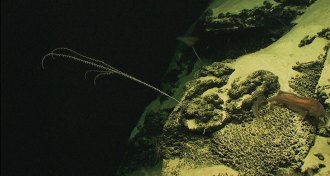 Life
LifeOcean archaea more vulnerable to deep-sea viruses than bacteria
Deep-sea viruses kill archaea disproportionately more often than bacteria, a killing spree with important impacts on the global carbon cycle.
-
 Health & Medicine
Health & Medicine50 years ago, noise was a nuisance (it still is)
In 1966, scientists warned of the physical and psychological dangers of a louder world.
-
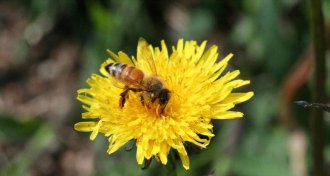 Animals
AnimalsBees take longer to learn floral odors polluted by vehicle fumes
Car and truck exhaust mingling with a floral scent can slow down the important process of honeybees learning the fragrance of a flower.
By Susan Milius -
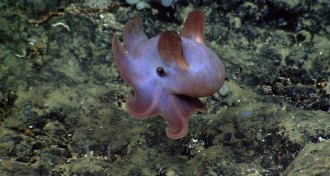 Oceans
OceansAtlantic monument is home to unique and varied creatures
A region of ocean off the coast of Cape Cod has become the first U.S. marine national monument in the Atlantic Ocean.
-
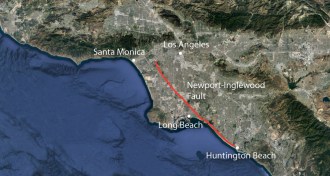 Earth
EarthSeismologists surprised by deep California quakes
Small earthquakes detected along the Newport-Inglewood Fault originate from deeper underground than once thought possible.
-
 Science & Society
Science & SocietySometimes failure is the springboard to success
Editor in chief Eva Emerson discusses scientific discoveries that resulted from failures large and small.
By Eva Emerson -
 Physics
PhysicsA metallic odyssey, what’s causing sunspots and more reader feedback
Metallic hydrogen, sunspot formation, salty desalination leftovers and more in reader feedback.
-
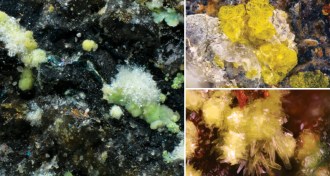 Planetary Science
Planetary ScienceRock hounds are on the hunt for new carbon minerals
The race is on to find about 140 predicted carbon-based minerals in locations around the world. Map included.
By Sid Perkins -
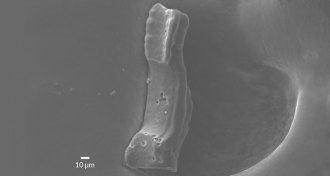 Earth
EarthGlass bits, charcoal hint at 56-million-year-old space rock impact
Glassy debris and the burnt remains of wildfires suggest that a large space rock hit Earth near the start of the Paleocene-Eocene Thermal Maximum warming event around 56 million years ago.
-
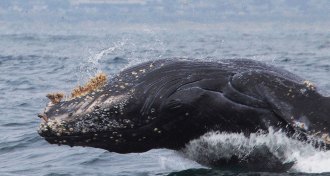 Animals
AnimalsBarnacles track whale migration
The mix of oxygen isotopes in the shells of barnacles that latch on to baleen whales may divulge how whale migration routes have changed over millions of years.
-
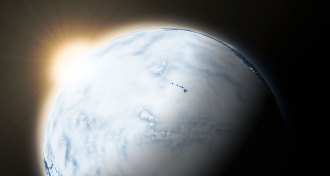 Climate
ClimateMethane didn’t warm ancient Earth, new simulations suggest
Scarce oxygen and abundant sulfate prevented methane from accumulating enough to keep Earth warm hundreds of millions of years ago, reviving the faint young sun paradox.
-
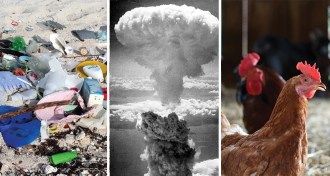 Earth
EarthNuclear blasts, other human activity signal new epoch, group argues
A group of scientists will formally propose the human-defined Anthropocene as a new epoch in Earth’s geologic history within a few years, probably pegging the start date to nuclear tests.